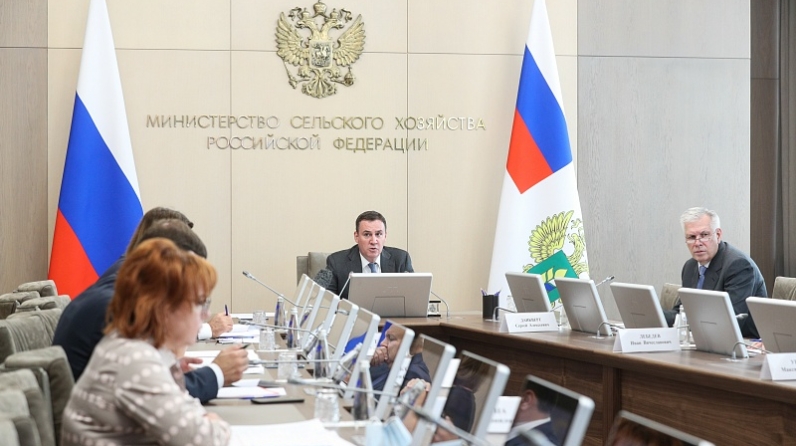The Ministry of Agriculture of Russia summed up the results of six years of the food embargo: Agriculture of Tatarstan showed growth

The Ministry of Agriculture of Russia has summed up the six-year results of the food embargo introduced by Presidential Decree No. 560 of August 6, 2014 "On the Application of Certain Special Economic Measures to Ensure the Security of the Russian Federation." During this time, the Russian agro-industrial complex has demonstrated significant development - today Russia is fully self-sufficient in basic food products and is actively increasing the export potential of the industry.
“Thanks to the work of our farmers and effective government policy, over the past six years, the volume of production of agricultural products has increased by 22.4%, and the industry has become one of the drivers of the Russian economy. All of us together managed to largely change the perception of agriculture as an unprofitable and risky industry, to form in the business environment an understanding that it is a modern, high-tech and profitable business. At the end of last year, the profitability of agricultural enterprises reached 13.3%, which is almost twice as high as in 2013. Today we note a stable inflow of Russian and foreign capital even from investors who previously had nothing to do with the agro-industrial complex. The industry has become one of the largest consumers of new technologies and advanced scientific developments. More and more people see in agriculture opportunities and prospects both for themselves and for their business, ”said Dmitry Patrushev.
In 2014-2019, the actual growth in production in agriculture was 119%, food products - 131%, beverages - 105%. At the end of the current year, the expected growth in production in agriculture over seven years may be 120.2%, food products - 135.3%, drinks - 108.1%, and in the agro-industrial complex as a whole - 125.1%.
According to the Deputy Prime Minister of the Republic of Tatarstan - Minister of Agriculture and Food of Tatarstan Marat Zyabbarov, after the introduction of the embargo, the agriculture of the Republic of Tatarstan also managed to maintain and show growth in production volumes. In terms of grain production, the growth was 60% (in 2019, agricultural producers of the republic harvested 4.1 million tons of grain, in 2013, 2.6 million tons of grain were harvested). The fruit and berry industry received an impetus for development due to the establishment of new intensive orchards. The gross harvest amounted to 109 thousand tons with an increase of over 40%.
During these years, special attention was paid to the seed industry. For 7 years, 47 varieties have been created, 43 of which are included in the State Register of Breeding Achievements of the Russian Federation, 23 are undergoing state variety testing. In recent years, more than half of the sown area in the republic was occupied by varieties of the TatNIISH, and in Russia there were 1.7 million hectares of varieties of the Tatarstan selection.
During this period, many organizations took part in the modernization of their production facilities, increased processing capacities and began to produce new types of products.
Such areas as meat and offal also show growth - 1.3 times (132%), vegetable oil - 3 times (333%), processed and canned fish - 3 times (318%), white beet sugar - 1.5 times (156%), confectionery - 1.5 times (148%), pasta - almost 2 times (193%), butter - 1.5 times (147%), cheeses and cheese products - 2 times (209%).
For 2015-2019 140 billion rubles were invested in the agro-industrial complex of Tatarstan: 96 billion rubles - in agriculture, 44 billion rubles - in the processing industry.
30 of the 40 current presidential support and development programs are implemented in agriculture. In 2019 alone, funding for programs of the President of the Republic of Tatarstan Rustam Minnikhanov in rural areas amounted to 21.4 billion rubles.